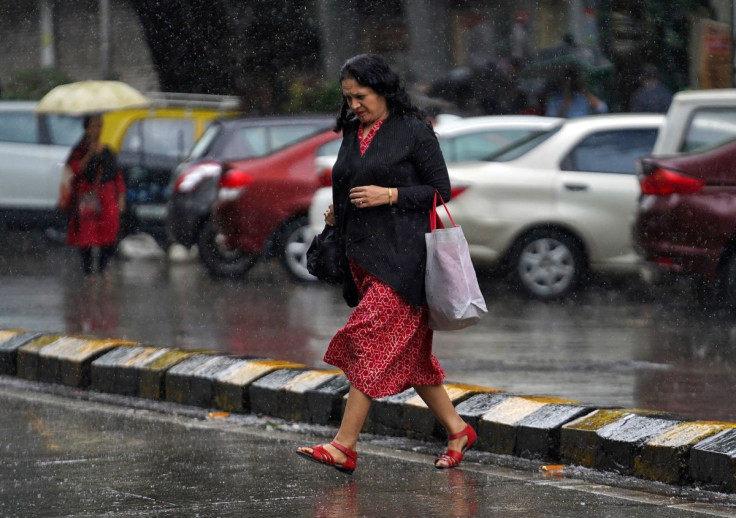India's Bill To Reserve 33% Of Parliament Lower House Seats For Women Is Historic But Not A 'Panacea'

KEY POINTS
- The proposed law will reserve 33% of seats in parliament's lower house and state legislatures for women
- The bill was approved in the lower house Wednesday and was taken up for debate in the upper house
- If implemented, the 33% reservation for women will continue for 15 years
India is now one step closer to implementing a landmark legislation that will increase female representation in politics, which for decades has been low in the country that bears the title of being the world's largest democracy.
While the enforcement of the legislation would be historic, experts believe reservations alone will not be enough to achieve gender parity.
The Women's Reservation Bill, which will reserve 33% of seats in India's powerful lower house (Lok Sabha) and state legislatures for women, was approved Wednesday in the lower house with an overwhelming consensus across political parties. The reservation of one-third of seats for women will continue for 15 years after its implementation. The bill now requires approval from lawmakers in the parliament's upper house, which took up the bill for debate Thursday.
India's Home Minister Amit Shah said the legislation will come into force only by 2029 following a new census.
First introduced in 1996, the bill has been brought to the table on different occasions but has never seen a consensus among political parties. A copy of the bill was even torn into pieces during one session in 1998.
The bill was finally passed in the lower house Wednesday with 454 members voting in favor and only two voting against it.
"The piece of legislation on women reservation is indeed an extremely significant and historic development as it will ensure the long-awaited presence of 33% of women legislators in the Lok Sabha, as well as in the state legislative assemblies in India, which will substantially increase the voices of women leaders, further facilitating more effective addressing of concerns of the women in India's legislative discourses both at the national and state level," Ambar Kumar Ghosh, an associate fellow under the Political Reforms and Governance Initiative at Indian think tank Observer Research Foundation, told International Business Times.
Nearly half of India's 950 million registered voters are women but they make up only 15% of parliament and around 10% of state legislatures. The 33% reservation could provide the much-needed boost for women's participation in electoral politics and be a small step in the long journey toward gender justice.
It could also put India on a list with 64 other countries that have seats reserved for women in their national parliaments, said Susan Ferguson, country representative of UN Women India.
"This initiative has the potential to create a critical mass of women in the political discourse, which has proven transformative in countries like Scandinavia," Vanishree Joseph, assistant professor at the Center for Gender Studies and Development at the National Institute of Rural Development and Panchayati Raj, told IBT.
"In these nations, the substantial presence of women in politics has led to significant changes in legislative procedures and the development of gender-transformative policies, benefiting not only women but also children," she added.
Akhil Neelam, co-founder of the Centre for Gender and Politics, said the bill was a significant step forward but cannot be seen as a "panacea." He also underscored the importance of men's allyship and the necessity for stakeholders to pool in their efforts to truly achieve women's political empowerment.
"The introduction of this bill propels India to join the ranks of other South Asian nations and global democracies that have leveraged quotas to enhance women's political empowerment," Neelam said.
"Yet, while the bill is a significant step forward, it is not a panacea," he added. "With a 15-year implementation horizon, there's an imperative for stakeholders — spanning civil society, political parties, the Election Commission, and academia — to come together and work hand in hand to maximize the impact of this bill in the next 15 years. In this regard, the role of men's allyship in politics is very important. Male leaders should be ready to encourage women cadres in their networks to come forward, participate in politics and contest elections, and become allies and supporters."
The elected women representatives would have to navigate through the challenges posed by patriarchy and party ideologies, Joseph explained. She also warned about the risk of elected women representatives being used by their political parties as "puppets."
"Elected women representatives may find themselves constrained by the ideologies and priorities of their respective political parties. This limitation could hinder their ability to enact meaningful change independently," Joseph said.
"Elected women representatives in parliament and state legislatures should not be reduced to mere puppets in the hands of their male counterparts," she added. "To ensure their effective participation and leadership, it is imperative to implement robust training and capacity building programs that equip them with the knowledge and skills needed to shape the political discourse and drive transformation."
The problem of women's political representation is an issue faced by nations across the world. Women worldwide are underrepresented as voters and also in leading positions in the political sphere.
Only 26 countries have women serving as heads of state and/or government as of Sept. 15. It would take another 130 years to achieve gender equality in the highest positions of power if the current rate continues, according to UN Women's estimates.
© Copyright IBTimes 2025. All rights reserved.






















